Kosovo Nurses Provide Specialized Care and Education to Diabetes Patients
A Personal Battle with Diabetes
When Ylfete Spahiu, 50, was pregnant with her fifth child, she discovered she had diabetes. This revelation was shocking, as many of her family members also had the condition. She knew it would not be an easy life going forward. That day, 12 years ago, Ylfete felt she was battling the biggest challenge, as she had no idea how to manage diabetes.
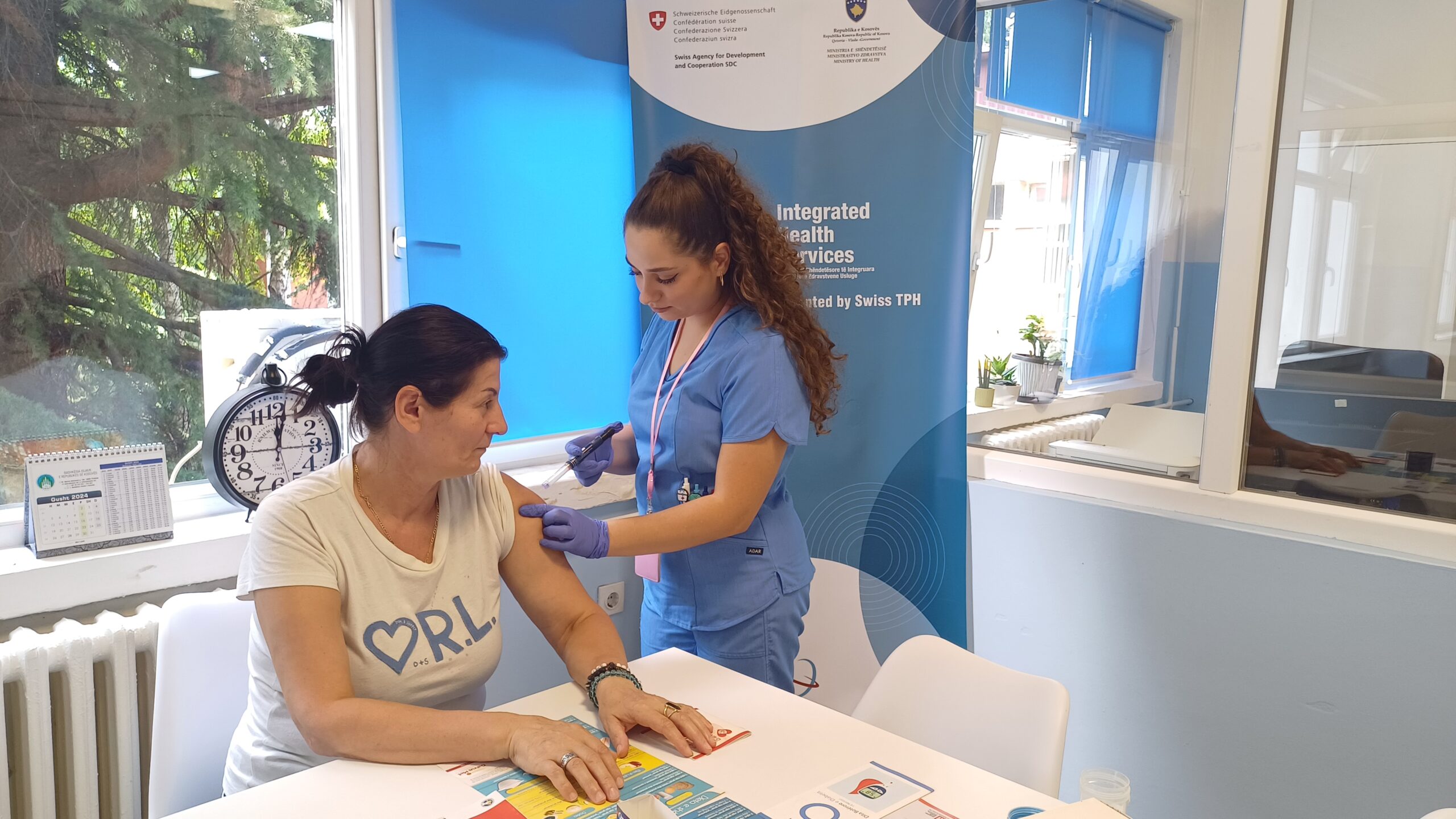
The Health Challenge in Kosovo
Recent studies show that Kosovo has some of the worst health indicators in Southeastern Europe, with a high prevalence of Non-Communicable Diseases (NCDs). It is estimated that one in every seven people above 40 years of age is affected by diabetes, hypertension, or lung diseases. These conditions require ongoing management, often involving multiple healthcare providers and specialized treatments. Nurses, as frontline healthcare providers, play a crucial role in delivering high-quality care and educating these to manage their life-long conditions.
The Role of Nurses in Diabetes Management
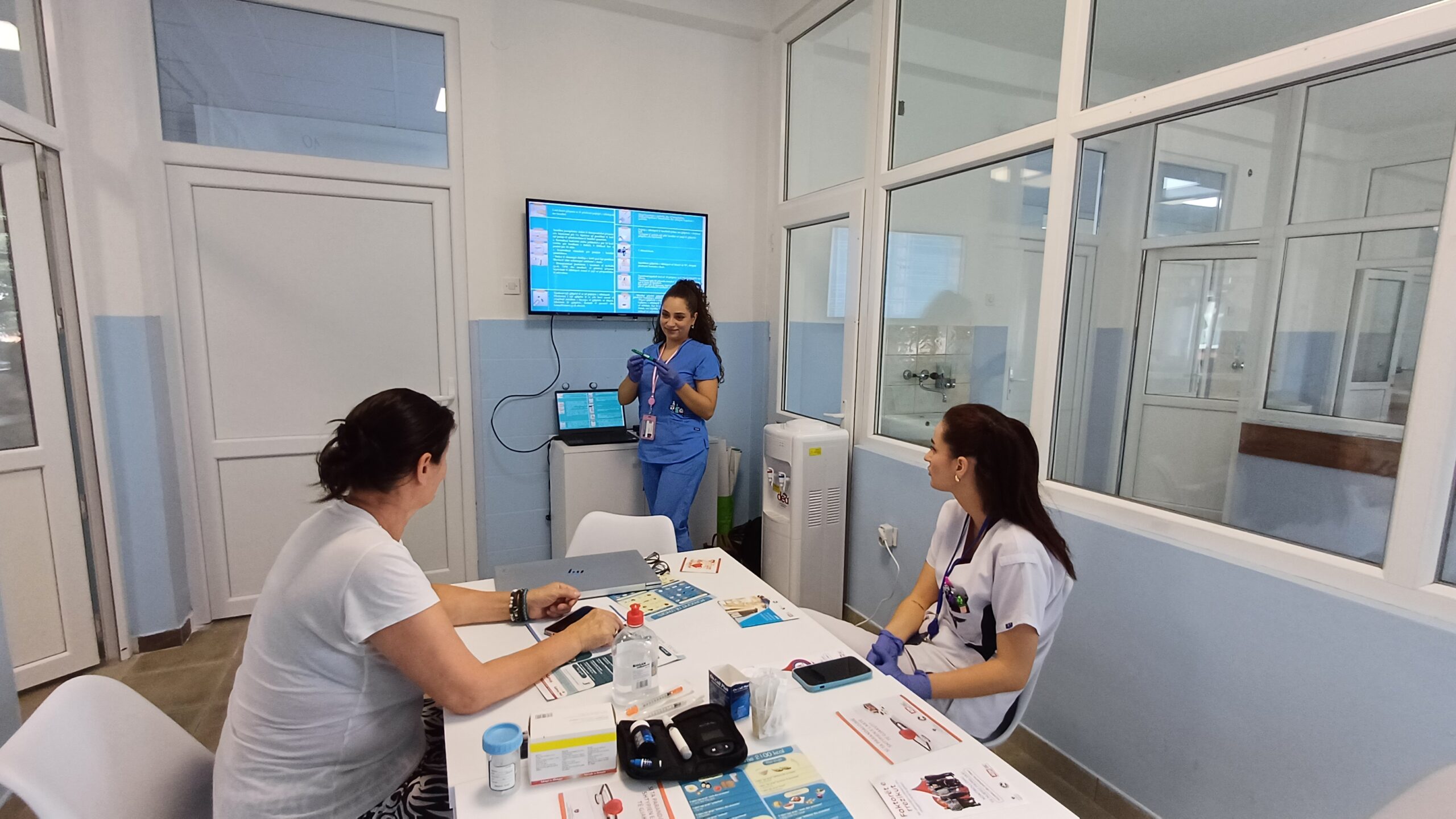
“Managing diabetes becomes a life-long commitment for our patients, requiring lifestyle changes,” says Arta Hyseni, a nurse at the internal medicine department of the General Hospital (GH) of Peja. In early 2024, this hospital became member of the International Health Promoting Hospitals’ network. “Nurses support the treatment of patients and, just as importantly, we educate them on how to deal with the condition going forward. We work closely with patients, their caregivers, and community members. Education and prevention are key to a better life.”
Night-shift nurse Dafina Hajdaraj, also from the GH of Peja, adds, “Inappropriate management of diabetes and lack of information, paired with health-related misinformation, affect patients at a larger scale. Hence, I talk to patients about foods they need to consume or stay away from, the importance of appropriate footwear, what type of online or hearsay information to be wary of, and how important it is to exercise.”
Specialized Training for Nurses
Both Arta and Dafina recently completed a specialized training program for nurses, with a focus on the management of NCDs, tackling patient care, treatment procedures, and administrative responsibilities.
Majlinda Sadiku, Chief Nurse at the internal medicine department of the GH of Peja, says the training has greatly improved workflow within the department. “Our department has a heavy workload. The training that nurses attended has enabled me to delegate tasks more effectively. For example, when I went on leave, we had a better framework in place for shifting the tasks: now, anyone can replace me, not just one nurse, as it used to be. This has empowered the team and improved cooperation and management quality.”
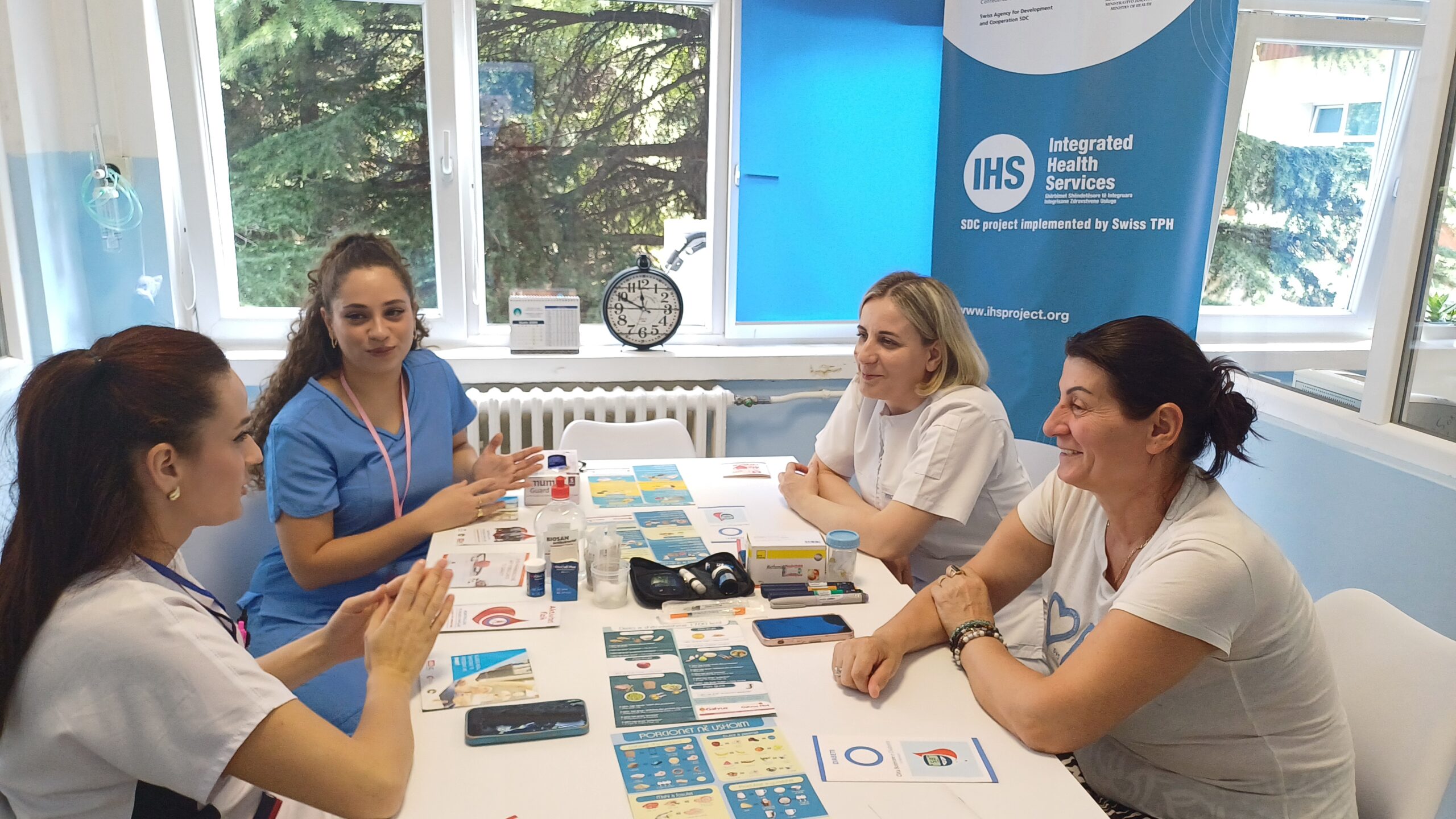
Improved Patient Outcomes
Ylfete’s management of diabetes has vastly improved ever since she learned how to use the insulin pen, under the careful guidance of the hospital nurses. She experienced severe episodes a few times, resulting in hospitalization, so the advice of Nurse Arta and other nurses has become a mantra to her.
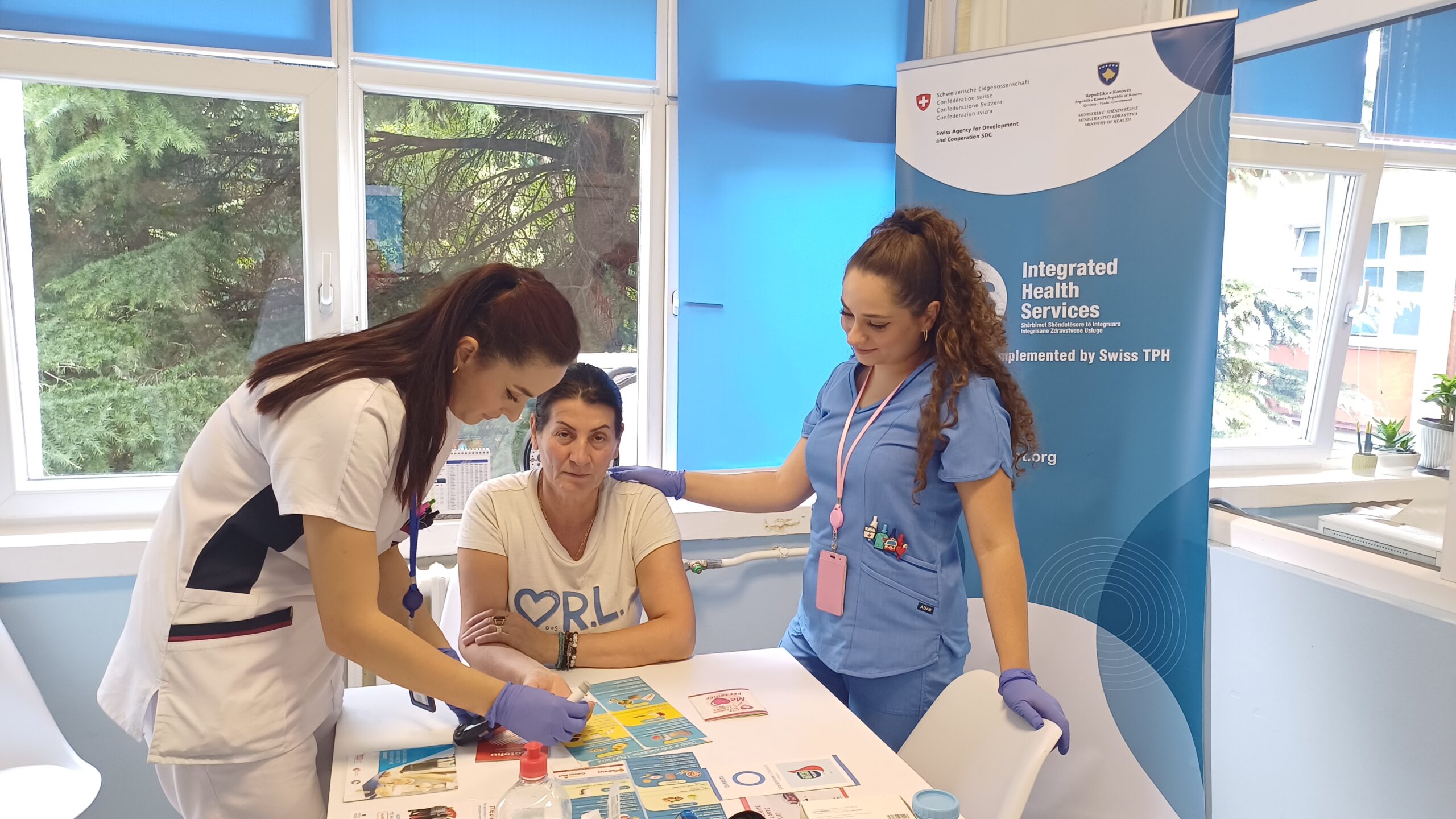
“I feel safer when I know that the nurses taking care of me are continually learning new things,” says Ylfete while nurses Arta and Dafina cater to her immediate health needs at the hospital’s Health Resource Centre.
Seeking Solutions in the Healthcare System
Despite their commitment, hospital nurses in Kosovo face significant challenges, especially in managing complex clinical tasks and providing specialized care. Limited opportunities for post-basic specialist training hinder a more holistic and patient-centred approach by appropriately trained nurses, sufferers.
The Integrated Health Services (IHS) project is a joint initiative between the Kosovo Ministry of Health and the Swiss Government, working with Kosovo institutions to facilitate further support to building national capacity in the health sector. IHS aims at equally empowering patients to take an active part in controlling their health problems and risk factors. The Project is set to strengthen specifically the collaboration between primary healthcare centres and hospitals, leading to more integrated and effective care for NCDs.
Training and Development Initiatives
To this end, IHS conducted a Training Needs Assessment to identify priority clinical topics to improve hospital health services. The assessment results were in use to develop and deliver a Specialized Nurse Training Program, accredited by the Nursing Chamber of Kosovo. This program ran from April to June 2024, completed by 529 nurses from the two IHS partner general hospitals in Peja and Gjakova.
Training topics were nursing supervision, care for patients with NCDs, nursing care for diabetic foot patients, communication and interpersonal relations in healthcare, and countering health dis- and misinformation. The package also included a Training of Trainers on managing adult diabetes mellitus.
Enhanced Nurse-Doctor Collaboration
Dr. Teuta Goga, an endocrinologist at the GH of Peja, notes that the training has positively impacted the doctor-nurse relationship. For Dr. Teuta, such improved communication ensures continuous care and timely information sharing. “The training was worthwhile, as nurses have gained additional knowledge, confidence, and skills. It also increased nurses’ awareness of their critical role in patient care.” An added benefit of the training, according to Dr, Teuta, is that “patients have become more informed about their condition and the necessary care they should get, including dietary needs and calorie intake.”
Focused Training on Diabetic Foot Care
The goal of the training was to initiate health education focused on patient care. Sadete Ejupi – Kallaba, one of the program trainers, highlights the specific section on diabetic foot.

“During the training, participants learned advanced techniques for foot examination and care methods, aimed at improving the quality of services and preventing potential complications related to diabetes. This training program, combined with the IHS installed specific equipment for improved Diabetic Foot Care at the Hospital, aimed to empower nurses with new knowledge and skills, making them more capable of assisting patients in managing their condition more effectively and independently.”
Practical Training for Better Outcomes
“The training part on diabetic foot treatment was particularly useful. The new information and skills gained were well-elaborated; we acquired advanced knowledge, like how to use the tuning fork and what it is used for. Before that training, we thought it was only used at the neurology or orthopedics department. We did not know we can also use it for diabetic patients,” says Nurse Arta.
According to the participants, the training program was specifically designed to develop practical skills, which made all the difference. Role-play was used as a tool to explain concepts and procedures, accompanied by advanced theoretical learning.
A Path Forward in Diabetic Care
The specialized training programs for nurses in Kosovo, such as the one implemented by the IHS project, are a key segment of improving healthcare outcomes for patients with chronic conditions, like diabetes. By equipping nurses with advanced skills and knowledge, these programs enhance the quality of patient care, promote better disease management, and foster a more collaborative healthcare environment.
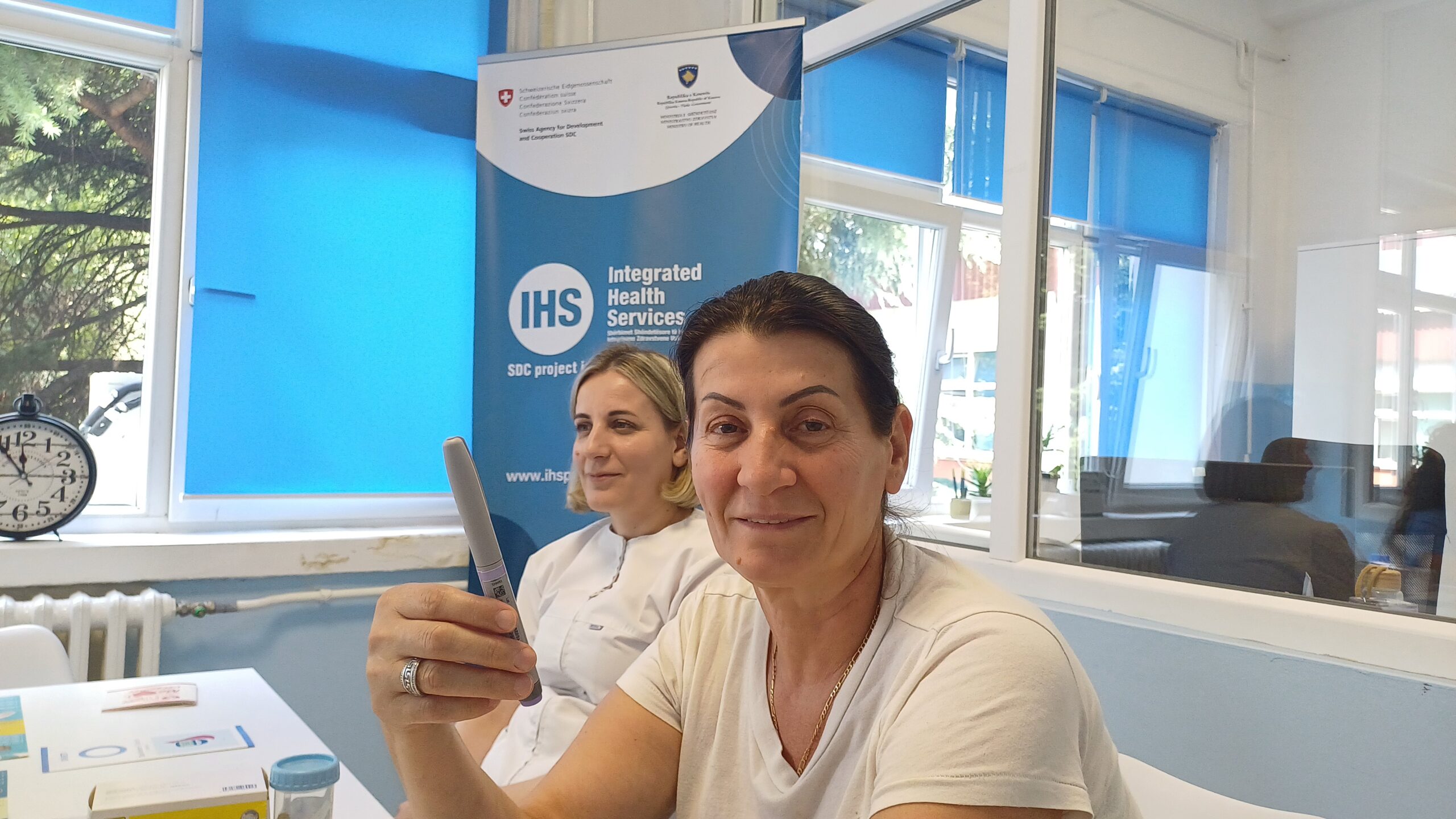
The nurses’ enhanced ability to provide not only medical treatment but also crucial education and practical support to patients ensures that individuals like Ylfete Spahiu can lead healthier improved lives despite their diagnoses now easier to manage with IHS support.